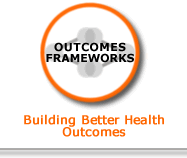 |
D. Evidence for empowerment of individuals and rights-based approach for access to services (Recovery Model) |
Summary The Scottish Government Quality Improvement Framework for Drug and Alcohol Services is supportive of empowerment for individuals and a rights-based approach in access to services. Scottish policy and practice note In the Scottish Government commissioned evidence review, Best et al (2010) [1]describe a recovery oriented system of care (ROSC) as a network of formal and informal services developed and mobilised to sustain long-term recovery for individuals and families impacted by severe substance use disorders. It is also put forward that overall treatment systems (such as ADPs) will be restructured over time to be recovery oriented, in the sense that the ethos of the system will be around client empowerment and choice, and the distillation of hope for individual, family and community recovery. The Quality Principles: Standard Expectations of Care and Support in Alcohol and Drug Services (2014) [2] is supported by a Recovery Philosophy. This is a statement of the principle that all people have a right to recover from addiction to alcohol and other drugs. It exists to support recovery journeys, ensuring that individuals are treated with dignity and respect when they choose to access drug and alcohol treatment and support services; and that with these rights come responsibilities.
References:
|

